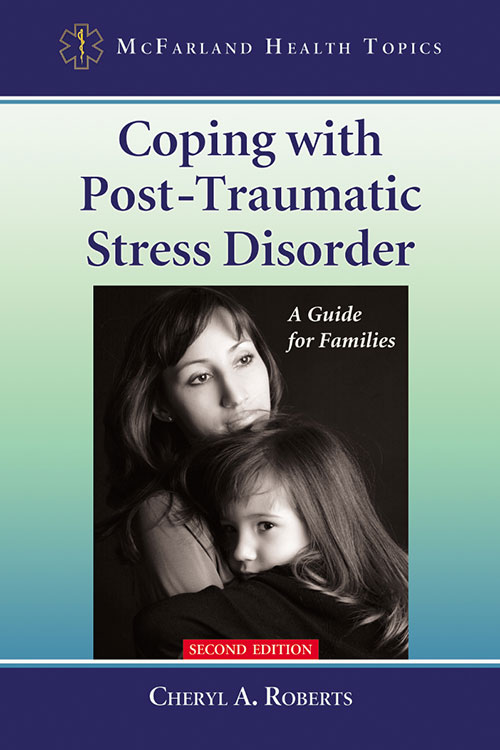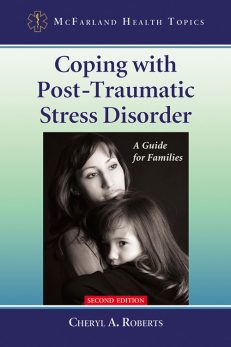Coping with Post-Traumatic Stress Disorder
A Guide for Families, 2d ed.
Original price was: $29.95.$23.99Current price is: $23.99.
In stock
About the Book
This book is a user friendly discussion of Post-Traumatic Stress Disorder (PTSD) as it affects individuals and families. PTSD has become better known and more frequently diagnosed, and affects more than just military families. Causes, diagnosis and treatments, including counseling, medication, and alternative therapy, are discussed. The challenges faced by PTSD individuals and their families are addressed and recommendations are included. New to this edition is information regarding Iraq and Afghanistan war veterans and the new policies and treatments in use as well as information about women war veterans, who are a newer demographic for combat PTSD.
About the Author(s)
Bibliographic Details
Cheryl A. Roberts
Format: softcover (6 x 9)
Pages: 231
Bibliographic Info: appendices, bibliography, index
Copyright Date: 2011
pISBN: 978-0-7864-4974-3
eISBN: 978-0-7864-8563-5
Imprint: McFarland
Series: McFarland Health Topics
Table of Contents
Preface 1
Introduction 13
1. What Is Post-Traumatic Stress Disorder? 19
2. How Is PTSD Diagnosed, and by Whom? 41
3. Who Is at Risk for PTSD? Can PTSD Be Prevented? 49
4. Cross-Cultural Perspectives: Is PTSD a Universal Disorder? 58
5. PTSD and the Individual 72
6. PTSD and the Family 84
7. Can PTSD Families Be Healthy Families? 99
8. Treatment for PTSD: Counseling 113
9. Treatment for PTSD: Medication 140
10. Complementary Techniques for Treating PTSD 155
11. Living with PTSD 168
12. Trends in PTSD Research and Treatment 175
Conclusion 179
Appendix A. Diagnostic Criteria for PTSD (DSM IV) 185
Appendix B. Global Assessment of Functioning Scale (DSM IV) 187
Appendix C. Resources for PTSD Survivors and Families 189
Appendix D. Resources for Veterans 191
Appendix E. Recommended Publications 193
Appendix F. Recommended Films 201
References 209
Index 219
Book Reviews & Awards
“Presents typical challenges faced by PTSD individuals and their families…helpful recommendations…of great value to veterans or those in the armed services who may be experiencing PTSD and their family and friends”—Library Journal.





